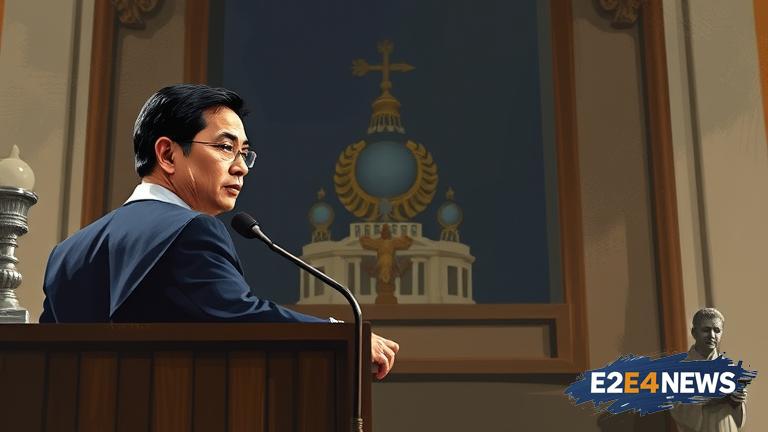The Supreme Court of the Philippines has handed down a landmark decision regarding impeachment, sending shockwaves throughout the country’s political landscape. In a move that has been hailed as a significant development in the nation’s democratic process, the court ruled that its decision on impeachment is immediately executory. This means that the ruling will take effect immediately, without the need for further review or appeal. The decision has sparked intense debate and discussion among politicians, legal experts, and citizens alike. Many have praised the court for its bold move, citing the need for swift and decisive action in cases of impeachment. Others, however, have expressed concerns about the potential implications of the ruling, arguing that it could lead to abuse of power and undermine the democratic process. The impeachment process in the Philippines is a complex and contentious issue, with many politicians and government officials facing allegations of corruption and misconduct. The Supreme Court’s decision is seen as a significant step forward in the country’s efforts to promote transparency and accountability in government. The ruling is also expected to have far-reaching implications for the country’s political landscape, potentially paving the way for future impeachments and shaping the course of the nation’s democratic development. Despite the controversy surrounding the decision, many Filipinos have welcomed the ruling as a positive step towards promoting good governance and combating corruption. The Philippines has a long history of corruption and abuse of power, and the Supreme Court’s decision is seen as a significant effort to address these issues. The country’s constitution provides for the impeachment of government officials, including the president, vice president, and members of the Supreme Court. The impeachment process is a complex and multi-step process, involving both the House of Representatives and the Senate. The Supreme Court’s decision is expected to clarify and streamline this process, providing a clearer framework for impeachment proceedings. The ruling is also seen as a significant victory for the opposition, which has been pushing for greater accountability and transparency in government. The decision has sparked a lively debate about the role of the judiciary in the country’s democratic process, with many arguing that the Supreme Court has overstepped its bounds. Others, however, have praised the court for its courage and independence, citing the need for a strong and independent judiciary to check the power of the executive and legislative branches. As the country continues to grapple with the implications of the Supreme Court’s decision, one thing is clear: the ruling marks a significant turning point in the Philippines’ democratic development. The decision is expected to have far-reaching consequences, shaping the course of the nation’s politics and governance for years to come. The Philippines is a country with a rich and complex history, and the Supreme Court’s decision is just the latest chapter in the nation’s ongoing struggle for democracy and good governance. As the country moves forward, it is clear that the Supreme Court’s ruling will play a significant role in shaping the nation’s future. With its bold and decisive action, the court has sent a clear message that it will not tolerate corruption and abuse of power, and that it will do everything in its power to promote transparency and accountability in government. The decision is a significant step forward for the Philippines, and it is expected to have a lasting impact on the country’s democratic development. The Supreme Court’s ruling is a testament to the country’s commitment to democracy and the rule of law, and it is a powerful reminder that the judiciary plays a critical role in promoting good governance and combating corruption. As the Philippines continues to navigate the complexities of its democratic process, the Supreme Court’s decision will serve as a guiding principle, shaping the course of the nation’s politics and governance for years to come.
